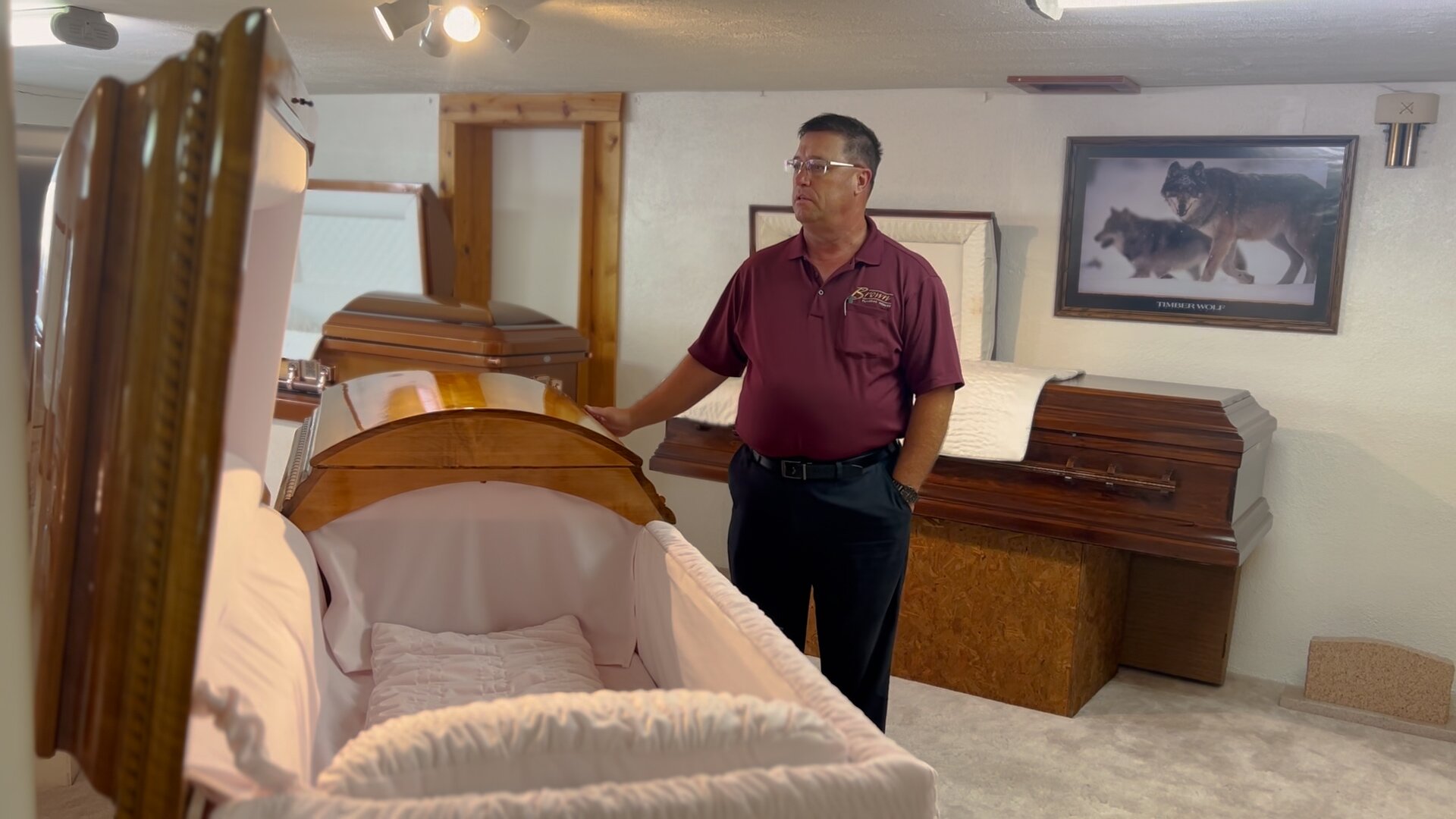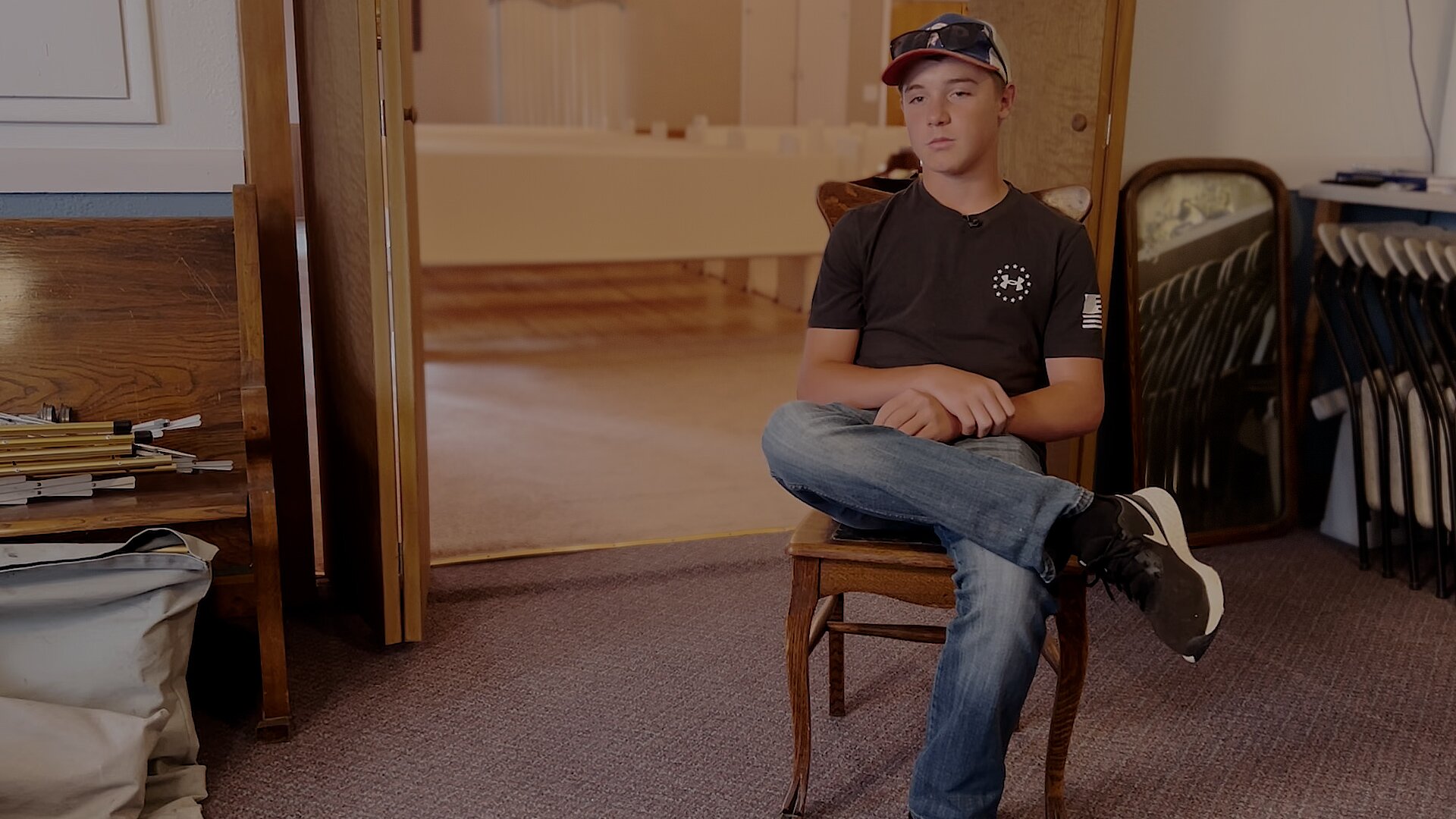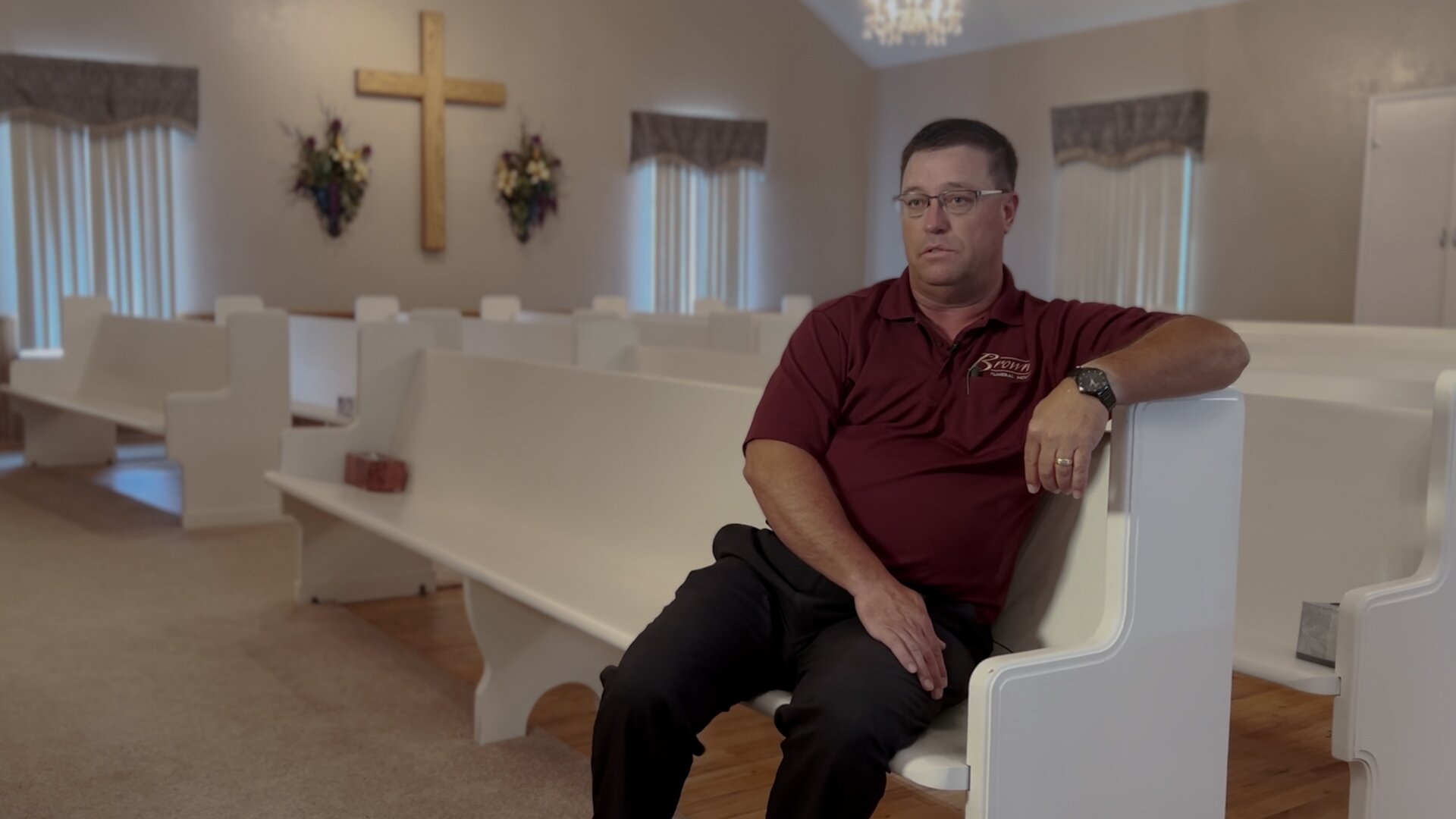Rural Colorado funeral director warns of decline among death caregivers

EADS, Colorado — When asked to describe the benefits of a career in the death care industry, Jimmy Brown talks about intangibles like trust, respect and service.
He was intrigued with the work as a teenager when his grandmother died unexpectedly. The funeral director at the time was Sam Peacock, a gentleman who Brown says was very highly respected in the Arkansas Valley.
The morning of his grandmother’s funeral, Brown remembers seeing Peacock sitting at the kitchen table eating breakfast with his family. “And I thought, you know, that’s really something — for someone to feel that comfortable, that confident, to be able to have that relationship with the family and to be held in that regard,” Brown said. “And I thought … that’s something I’d like to have for my life.”
Today, Brown and his wife own funeral homes in Eads, Cheyenne Wells and Burlington. But recruiting help has been a struggle.
“We recently went on a hiring search for one of our other funeral homes,” Brown told Rocky Mountain PBS during an interview in the chapel of his Eads location. “We needed a resident funeral director-embalmer. We looked for over two years before we were able to find someone.”
Brown says his search included calls to eight or nine mortuary schools. His takeaway was discouraging.
“You’re swimming upstream because we just don’t have the students to do this,” Brown said. “As of a few months ago, there were over 1,100 funeral homes in the United States of America in search of funeral director-embalmers.”
Demand for death caregivers is expected to jump over the next three decades, when the Social Security Administration predicts the number of U.S. residents over 65 will nearly double. Deaths are expected to peak in 2055, according to the U.S. Census Bureau.
Brown and his wife Amanda admit their line of work requires sacrifice: they are on call 24 hours a day, seven days a week. “And our job is to help people through … probably the hardest time of their lives, when they’ve lost a loved one,” said Amanda Brown, who is also a certified public accountant. “No matter what we have going on in our lives, we have to put them first.”

And rural death care almost always involves relationships that have already been established. “They expect more of you,” said Brown. “They’re not calling you because of where your building is located. They call you because you’re the one that they want. You’re the person that they trust at that time in their life.”
Brown admits that at other times, he is probably not the most popular guy in town because, as he put it, “…what kind of person deals with the dead? But really, it’s as much about dealing with the living as it is about dealing with the dead.”

Despite the sacrifices and occasional social isolation, Brown has convinced his teenage nephew to explore the profession.
“I’ve been helping out everywhere I can … sometimes work funerals, doing whatever he needs me to do,” said Karsten Buller, who will be a freshman at Eads High School this year. “I like that this work is God’s work. And I can help people.”

“I’ve watched him grow up and I’ve observed his temperament,” Brown said. “I felt that he had the potential to do this work … if he decides that this is something he’s called to do, then I’m willing to invest my time and effort into seeing to it that he’s successful in this work.”

An associate degree in funeral service or mortuary science is the typical education requirement for funeral service workers in the U.S. Currently, Colorado has no licensing requirements for morticians.; voluntary certifications are available. Arapahoe Community College offers an accredited associate degree in mortuary science.
As for Brown, the current shortage of death care workers is a symptom of something larger.
“You can tell a lot about a community as to how they’re going to treat the living by the way they take care of their dead,” Brown said. “I know of four or five funeral homes within 200 miles … of here that are all looking for help. And we cannot find it. It’s a problem that’s on the horizon. And people need to be taking this seriously. Because whether we want to admit to it or not, there will always be death. And the dead must be taken care of.”
Jeremy Moore is a senior multimedia journalist with Rocky Mountain PBS. You can email him at jeremymoore@rmpbs.org.